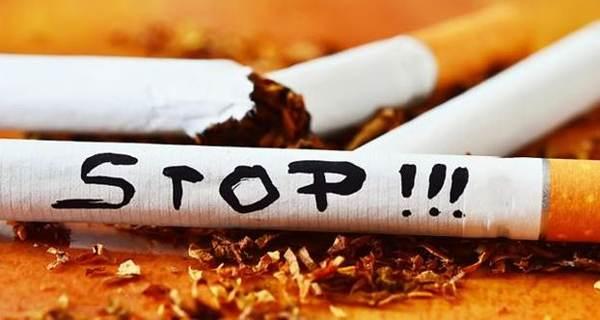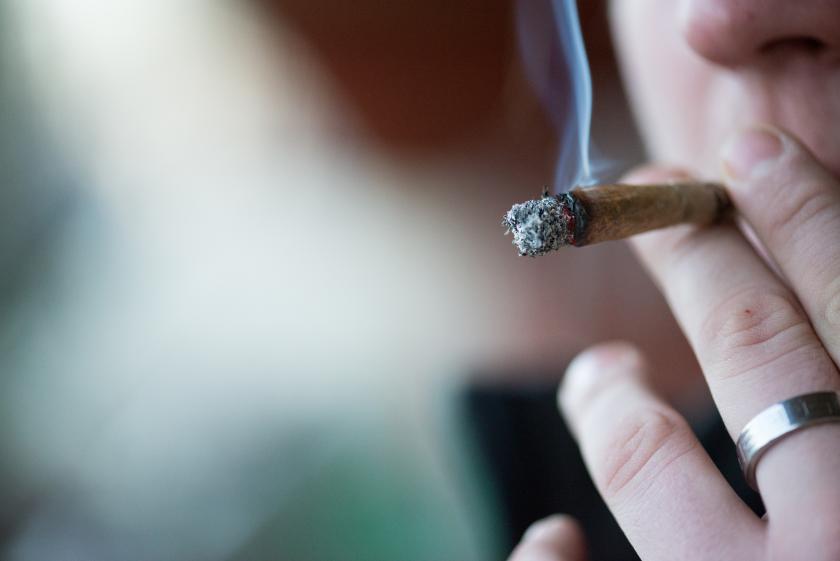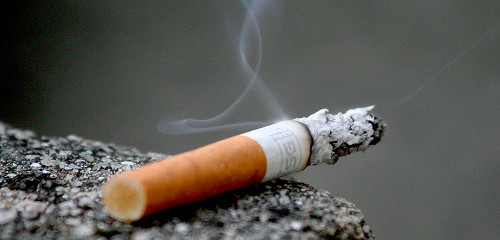A poor diet not only spells disaster for general health but it could also be a leading cause of deaths all over the world. If a new study is to be believed, consuming unhealthy foods regularly and not eating enough healthy foods can wreak more harm than smoking cigarettes! The finding, which was published in the international medical journal, The Lancet, observed and assessed the consumption of major foods and nutrients across 195 countries among adults over the age of 25. The relationship between sub optimal diet and the rate of mortality was studied carefully. Over 130 scientists from around 40 countries took part in the analysis and the results are shocking enough to push you towards a healthy diet immediately.
A healthy diet is synonymous to good health. 'We are what we eat' - we have heard this a gazillion times. The saying lays stress on watching our diet carefully as it is the basis of our overall well being. As good food helps us maintain a good health, bad food can do the exact opposite.
The study reveals that poor diets caused 10.9 million deaths (22% of all deaths) among adults in the year 2017 while smoking was responsible for 8.0 million deaths. It further divulges that 50% of the diet-related deaths were caused due to low intake of healthy foods. Specifically, 3 kinds of feeding habits were held responsible for such a harsh impact on people's health.
The Three Bad Diets Linked To High Mortality Rate Are -
- Low intake of whole grains
- Low intake of fruits
- High consumption of sodium
And the foods that are linked to high death rates (one in every five deaths globally) are - red meat, processed meats, sugar-sweetened beverages, and trans fatty acids among other foods.
It was also found out during a survey for the study that the biggest gap between an optimal diet and a bad diet is usually caused by the dearth of milk, whole gains and nuts and seeds.
Researchers pointed out a glaring fault in the general dietary perception of the people - We lay too much emphasis on restricting the consumption of unhealthy foods. While a good dietary strategy should focus more on including a good amount of healthy foods.
Other than encouraging people to put more healthy foods on their plate, it is also important to direct food and beverage industry to regulate their manufacturing norms and produce cleaner foods with less trans fats, chemicals, additives and sugar. Only a collective effort by the producers and the consumers can lead to a healthy and sustainable living.

Smoking can cause irreparable damage to your mind and body. Chemicals in the tobacco travel to all parts of the body, leaving no area unaffected. According to available data, smoking causes 30% of all cancer deaths and about 80% deaths from emphysema and bronchitis. In addition to adversely affecting yourself, smoking also has a severe impact on your near and dear ones. According to WHO, about 600,000 people die every year from passive smoking. Out of the deaths that occur due to this, 1/3rd is that of children.
The Indian situation
While 85% of tobacco users worldwide consume it in the form of cigarettes, in India only 13% use it in that form. Additionally, 54% use it in the form of beedis. A study conducted on Indian smokers has revealed that an average of 8.2 cigarettes is smoked by an individual daily.
The study also revealed that the number of cigarettes smoked every year had grown to over 6 trillion. While 1 out of 10 adults dies from tobacco-use worldwide, 5% of deaths in women and 20% of deaths in men in India are caused by cigarette and beedi smoking.
What happens when you smoke?
Cigarette smoke is made up of 4000 chemicals that are present either as tiny particles or gases and about 50 are known to lead to cancer, the toxin nicotine being one of them. In addition to nicotine, the chemicals that make up cigarette smoke also include tar and carbon monoxide. Prolonged exposure to these toxins can hamper your body's ability to filter air and clean the lungs. The smoke not only irritates the lungs but also causes excess production of mucus.
It also causes a paralysis of the tiny hair-like structures like cilia that line the airways and are responsible for removing dust and dirt from the organ. Paralysis of these hair-like structures also causes a buildup of mucus and toxic substances, leading to lung congestion. The extra mucus that is produced causes smokers to suffer from the very ubiquitous smoker's cough and chronic bronchitis.
It's also one of the many triggers of asthma, which brings about the narrowing and inflammation of the airways. Long-term exposure to tobacco smoke causes the destruction of the structure of the lung, walls of the airways as well as lung tissue. The result is a condition known as emphysema. Additionally, smoking also leads to cancer of the lung and over 80% lung cancer cases occur due to this habit.
1. Set your date and time to stop; you’re going to quit smoking naturally so carry on smoking as usual until then
Set your date and time to stop and carry on smoking as usual right up to that time - don’t try to cut down beforehand, that just makes cigarettes seem more precious rather than less so.
2. Look forward
Remember – you’re not giving up anything because cigarettes do absolutely nothing for you at all. They provide you with no genuine pleasure or crutch, they simply keep you addicted – a slave to nicotine. Get it clearly into your mind: you are losing nothing and you are making marvellous positive gains not only in health, energy and money but also in confidence, self-respect, freedom and, most important of all, in the length and quality of your future life. You’re going to enjoy being a non-smoker right from the moment you put out your last cigarette.
3. Have a final cigarette; you’re going to give up smoking easily so make a solemn vow
Actually, there’s nothing to give up – you’re getting rid of something. Light your final cigarette and make a solemn vow that regardless of what highs or lows may befall you in future, you will never puff on another cigarette or take nicotine in any form again. This is one of the most important decisions you will ever make because the length and quality of your future life critically depend on it. What’s more, you know it’s the correct decision even as you make it. Having made what you know to be the correct decision never even begin to question or to doubt that decision.
4. Be cool about withdrawal; the physical withdrawal is very slight and passes quickly
Your body will continue to withdraw from nicotine for a few days but that doesn’t mean you have to be miserable or crave cigarettes. The physical withdrawal is very slight – there is no pain – and it passes quickly. What’s more, it’s what smokers suffer all their smoking lives. Non-smokers do not suffer it. You are a non-smoker and so you’ll soon be free of it forever.
If you associate a cigarette with a coffee, tea, drink or break, have your coffee, tea, drink or break and at that moment, instead of thinking: “I can’t have a cigarette now”, simply think: “Isn’t it great: I can enjoy this moment without having to choke myself to death”.
5. Socialise as normal; you won’t be craving a cigarette so there’s no need to avoid smokers
Do not try to avoid smoking situations or opt out of life. Go out and enjoy social occasions right from the start and do not envy smokers, pity them. Realise that they will be envying you because every single one of them will be wishing they could be like you: free from the whole filthy nightmare. No smoker wants to see their children start smoking which means they wish they hadn’t started themselves. Remember it’s not you who are being deprived but those poor smokers. They’re being deprived of their health, energy, money, peace of mind, confidence, courage, self-respect and freedom. If you’re offered a cigarette, just say: “No thanks – I don’t smoke”, rather than start a long conversation about how long it has been since you stopped.
6. Think about it; don’t try to “not to think” about smoking – it doesn’t work
Don’t try to “not to think about” smoking – it doesn’t work. If I say: “Don’t think about a brick wall, what are you thinking about? Just make sure that whenever you are thinking about it, you’re not thinking: “I want a cigarette but I can’t have one” but instead: “Isn’t is marvellous: I don’t need to smoke anymore and I don’t want to smoke anymore. Yippee, I’m a non-smoker!” Then you can think about it all you like and you’ll still be happy.
7. There’s no such thing as “just one” cigarette after you quit smoking
Never be fooled into thinking you can have the odd cigarette just to be sociable or just to get over a difficult moment. If you do, you’ll find yourself back in the trap in no time at all. Never think in terms of one cigarette, always think of the whole filthy lifetime’s chain. Remember: there is no such thing as just one cigarette.
8. Avoid Substitutes; patches, gums, nasal sprays and e-cigs just keep the addiction alive
Do not use any substitutes. They all make it more difficult to stop because they perpetuate the illusion that you’re making a sacrifice. Substitutes that contain nicotine such as e-cigarettes or so-called Nicotine Replacement Therapy; patches, gums, nasal sprays and inhalators – are particularly unhelpful as they simply keep the addiction to nicotine alive. It’s like advising a heroin addict who’s smoking the drug off foil, to start injecting it instead.
9. Ditch your cigarettes; you are already a non-smoker the moment you put out your final cigarette
Do not keep cigarettes on you or anywhere else in case of an emergency. If you do, it means you’re doubting your decision. Non-smokers do not need cigarettes. You are already a non-smoker the moment you put out your final cigarette. In fact one of the many joys of being free is not having to worry about having cigarettes and a light on you, of ending that slavery.
10. Enjoy your freedom; live a smoke-free life and be on your guard not to fall back into the trap
Life will soon go back to normal as a non-smoker but be on your guard not to fall back into the trap. If your brain ever starts playing tricks on you by thinking “Just one cigarette”, remember there is no such thing, so the question you need to ask yourself is not: “Shall I have a cigarette now” but “Do I want to become a smoker again, all day, every day sticking those things into my mouth, setting light to them, never being allowed to stop?” The answer “No”. Why not? “Because I didn’t like being a smoker – that’s why I decided to become a non-smoker”. That way those moments can become pleasurable as you congratulate yourself that you’re free and that way you can enjoy remaining a non-smoker for the rest of your life.
If you thought smoking was causing damage to only your lungs, thing again. Your eyesight, one of your most valuable possessions, is at high risk of damage because of your bad habit.
The damage done to your eyes by cigarettes happens from two sources; the toxic smoke that hangs in the air which surrounds you as you puff on the cigarettes and 4000 odd toxic substances that enter your bloodstream once you smoke. In extreme cases, smoking also causes loss in vision. Here is a list of eye disorders and diseases, which can be caused due to smoking-
Macular degeneration
The risk of developing Age-related Macular Degeneration is there for people above the age of fifty. In case of smokers, the chance of developing AMD is three times more than in nonsmokers. It has been proven that smokers develop the chance of AMD ten years prior to non smokers.
Cataract
This process involves the clouding of the lens inside the eye. Cataract develops with old age, usually. The risk of developing early cataract is common among smokers, who are twice at risk of cataract than non smokers. The effect of the cataract in the case of smokers is more severe.
Glaucoma
Glaucoma is the eye disorder where the death of nerve fiber layer behind our eyes takes place, and that results in loss of vision. The increase in pressure within the eyes leads to glaucoma. Smoking enhances the pressure in your eyes, and so smokers are at a potential risk of acquiring this disease.
Diabetic eye diseases
A number of eye diseases are accompanied with diabetes. This can result in blindness when left ignored or not paid attention to in severe cases. Diabetic patients who are smokers are three times more at a risk of eye diseases associated with diabetes.
Optic neuropathy
This eye disease causes sudden loss of vision to the eyes without any pain. It happens due to the disrupted flow of blood in the arteries of the eyes. Smokers are 16 times more at a risk of developing optic neuropathy at an earlier age.
Thyroid associated eye diseases
Patients having thyroid issues or Grave's disease have disorders in their vision. Grave's disease patients who smoke tobacco are likely to develop severe eye diseases associated with the thyroid.
Dry eye
Smoking causes irritation to the eyes and affects the tear film of the eye. Smokers and passive smokers are likely to develop dry eye disorders. Smoking causes a lot of eye diseases and disorders, and smokers are at a higher risk of acquiring eye diseases than non smokers.
Effects of Smoking on Sexual Health
Smoking, in general, has a negative effect on the human body. It can cause a host of disorders such as mouth cancer, blood pressure problems, and lung cancer. Smoking affects the sexual performance of both men and women.
Here are some effects that smoking has on sex :-
1. Impotence: Smoking can damage the blood vessels that lead to erectile dysfunction (a condition where the penis cannot sustain an erection).
2. Decrease in libido: Smoking can cause various physical problems such as stamina reduction and lack of desire for sex. An individual who smokes won't be able to give an optimal sexual performance and this can further lower satisfaction levels.
3. Erectile dysfunction: Smoking can cause problems related to the circulation of the blood in the body. It can narrow the arteries that supply blood and this is directly linked with erectile dysfunction.
4. Tissue damage: Smoking can damage the tissues inside the penis thus impairing your ability to have an erection during sexual intercourse.
5. Early onset of menopause: It can affect the estrogen (a sex hormone) levels in the female body; so, women who smoke tend to reach menopause early.
6. Reduction in penis size: It can reduce the penis size in men by damaging the blood vessels and the structure of the tissue around the penis. This is more common in younger men.
7. Reduction in stamina: Smoking can cause a reduction in the stamina, thus a person will not be able to perform well sexually. It can lead to fatigue and tiredness during sex.
Of course, there are a lot of therapies which can help you recover from the damage already happened because of smoking and prevent further damage.












